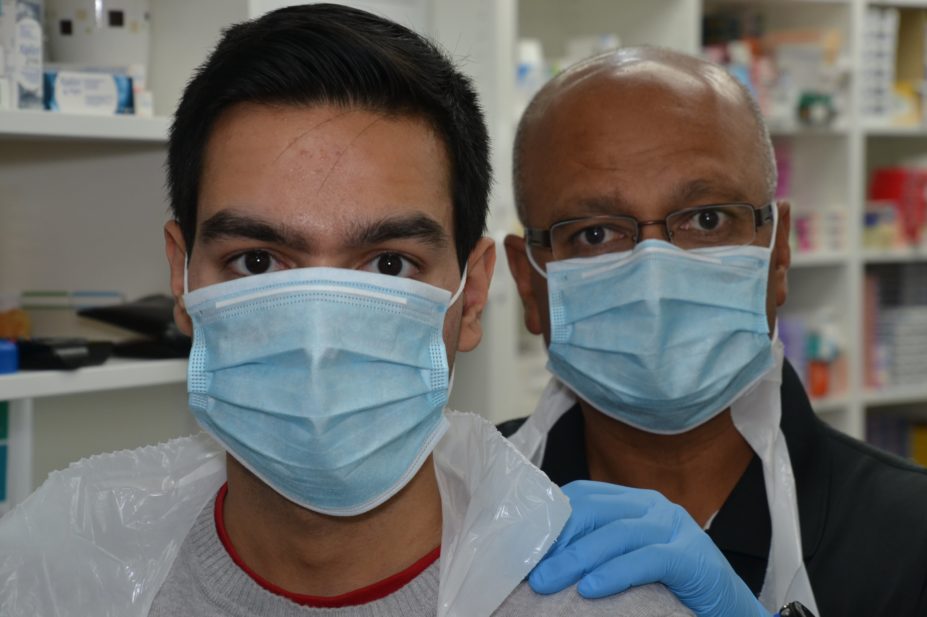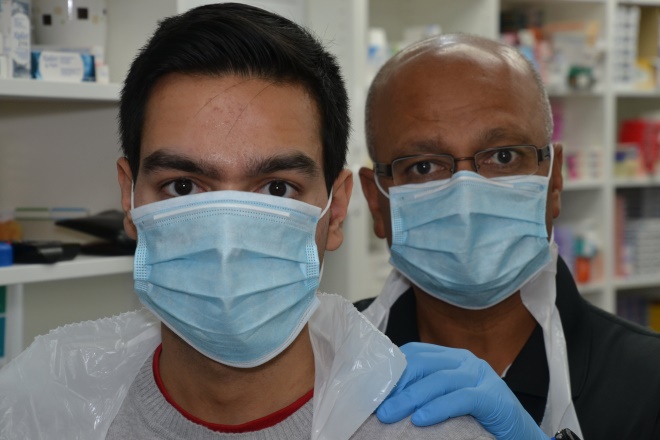
Mclean
Open access article
The Royal Pharmaceutical Society has made this article free to access in order to help healthcare professionals stay informed about an issue of national importance.
To learn more about coronavirus, please visit: https://www.rpharms.com/resources/pharmacy-guides/wuhan-novel-coronavirus

Source: Mclean
Research has shown that people of a black, Asian or minority ethnic background are more susceptible to SARS-CoV-2 infection than those who are not
Pharmacy leaders in the black, Asian and minority ethnic (BAME) communities have expressed concern that assessments of BAME staff’s susceptibility to COVID-19 are not widespread enough in community pharmacy.
NHS England wrote to community pharmacies on 29 April 2020 advising employers to “risk assess staff at potentially greater risk” of COVID-19 after “emerging UK and international data” suggested people from BAME backgrounds are “being disproportionately affected”.
The Faculty of Occupational Medicine later published a risk reduction framework— backed by NHS England — to assist with the risk assessments on 14 May 2020. This was updated on 28 May 2020 to include guidance from the Health and Safety Executive to “help organisations identify who is at risk of harm”.
But speaking to The Pharmaceutical Journal, Elsy Gomez Campos, president of the UK Black Pharmacists’ Association (UKBPA), said she had been told by a small number of community pharmacists that “nothing has been done” in terms of risk assessing BAME staff.
Gomez Campos said the UKBPA was collecting information from members on whether the risk assessments had been carried out.
“I know of a few people who have been assessed and that is mainly in hospital,” she said.
“In terms of community pharmacists — who I’ve had contact with so far — they haven’t even been asked to have the risk assessment done.”
However, she stressed that not many from the community pharmacy sector have come forward, but “the people who have come forward have said no, it has not been done”.
“People are quite scared to ask as well because it can have repercussions on their employment or their relationships [at work],” she added.
“They are trying to keep their head down and just get on with their work.”
Mahendra Patel, pharmacy lead for the British Association of Physicians of Indian Origin, said he’d been told that some community pharmacists had received an assessment, while others had not.
“The risk assessments have been happening, but it’s difficult to translate it into how far it’s happening,” he said, adding that there needs “to be a greater responsibility and urgency for organisations to ensure that they carry out these risk assessments”.
“There is no real pressure for companies to do that and, because of the added workload that they’re all in at the moment, I have the worry that this may potentially all get left behind,” he said.
Their comments come as LloydsPharmacy and Boots have refused to confirm whether they have started carrying out risk assessments following the publication of the framework, despite repeated requests for clarification from The Pharmaceutical Journal.
A spokesperson for Well Pharmacy previously said the multiple “hasn’t made any changes” to its risk assessment process, but that the company was expected to review this on 27 May 2020.
Meanwhile, a spokesperson for Rowlands Pharmacy said the company risk assess “all colleagues in a method that aligns to current government guidance and is continuing to review and refresh this approach, and the information used in the risk assessment, as new guidance gets released”.
Paul Day, director of the Pharmacists’ Defence Association (PDA), said the risk of contracting COVID-19 to BAME staff is “a known thing employers need to think about and have special consideration in their risk assessment for that factor”, adding that this applies to all employers and not just the multiples.
“If a pharmacist contracts COVID-19 and it is likely they caught it at work, the employer is required by law to report that to the Health and Safety Executive and so there will be a trail of which people have developed COVID-19 at work,” he warned.
“That is something I’m sure will be reviewed when this whole situation is looked at after the event.”
In an open letter to the equalities ministers in England, Northern Ireland, Scotland and Wales, the PDA drew attention to the high proportion (46%) of BAME individuals in the pharmacy profession and criticised the NHS England advice on risk assessments to employers, saying it “lacks clarity”.


